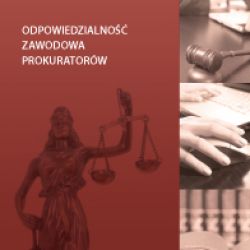The principal points of interest of the prosecutor’s office is to guard law and order as well as persecution of the crimes. It would be an ideal state of affairs if all of the penal proceedings were effective and proficiently conducted, those who had committed crimes found and punished, those innocent not faced criminal liability, the evidence gathered for the judicial procedure purposes and the details of each case thoroughly clarified. Unfortunately, it is not always possible since a wide amount of the acts of prosecutors that should be described as reprehensible may have effect on the bill of indictment which later on results in sentences convicting perpetrators. Frequently, the impossibility to held one accountable is caused by objective purposes, such as: lack of the evidence, hiding of the suspect or the difficulties in perpetrator’s identification. However, what sometimes make those obstacles to occur are the mistakes of officials responsible for the investigation or the inquiry – prosecutors.
The objective of the report is to give a response to the question which consequences incur prosecutors for infringements of the law, especially for indictments of people when there is not sufficient amount of data supporting crime commitment, for wrong conduction and supervision of preparatory procedures or for the actions that are harmful to the dignity of the prosecutor’s office.
Authors of the report made efforts to introduce legal procedures holding the prosecutors liability as well in Poland as in the other countries. This report highlights also the regulations which implementation may significantly improve the forms of the prosecutor’s liability. The ideas proposed by Karolina Kremens and Artur Pietryka are both specific legal regulations and general improvements in the matter mentioned above.
The authors are of the opinion that the regulations enabling periodical assessment of persecutor’s work need to be urgently introduced. It would be beneficial to the quality of proceedings and would constitute an additional incentive if they would be conducted scrupulously and honestly. The report contains the proposal of retrieving the law that makes possible for prosecutor who leads or supervises preparatory procedures to reject the order of the superior or to demand exclusion from doing an activity being commanded. The authors recommend also abolishing secret disciplinary proceedings of prosecutors and limiting prosecutor’s immunity. The Polish law concerning prosecutors is quite similar to other countries’ regulations, it does not mean, however, that our system cannot be improved.
The report is divided into four parts entitled:
1. Office responsibility
2. Disciplinary responsibility
3. Criminal responsibility
4. Civil responsibility
The chapters of the report are based mainly on the Act of 20 June 1895 r. on prosecutor office and on the Decree of 23 March 2010 on internal functioning of public organizational structures of persecutor’s office. Furthermore, the authors presented regulations of other countries (for example of France, Czech Republic, Netherlands, United States and Canada) and those stemming from international public law. Each of the parts was concluded by the recommendations proposing legal actions, which would be able to contribute to the persecutor’s public liability mechanisms enforcement.
The report is available at: http://www.for.org.pl/upload/Nowy_Wymiar_Sprawiedliwosci/odpowiedzialnosc_prokuratorow.pdf





